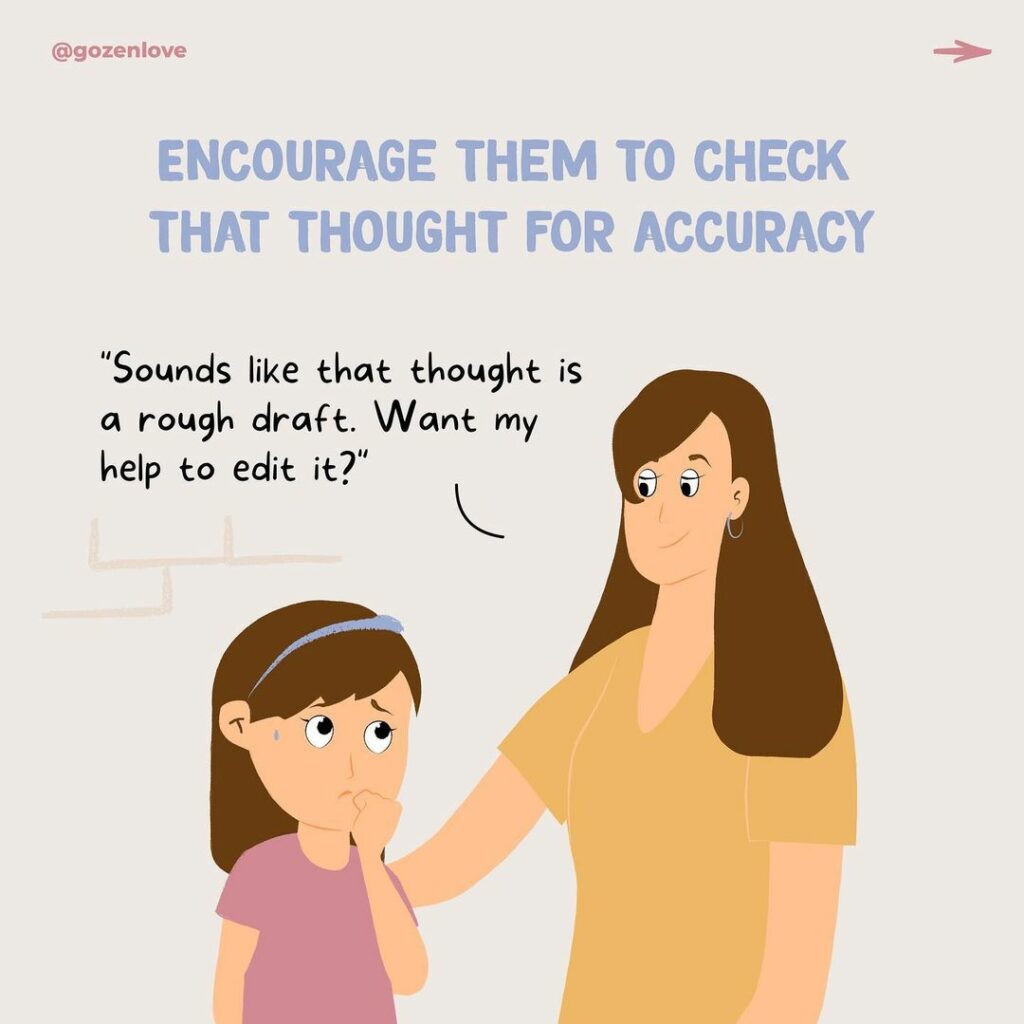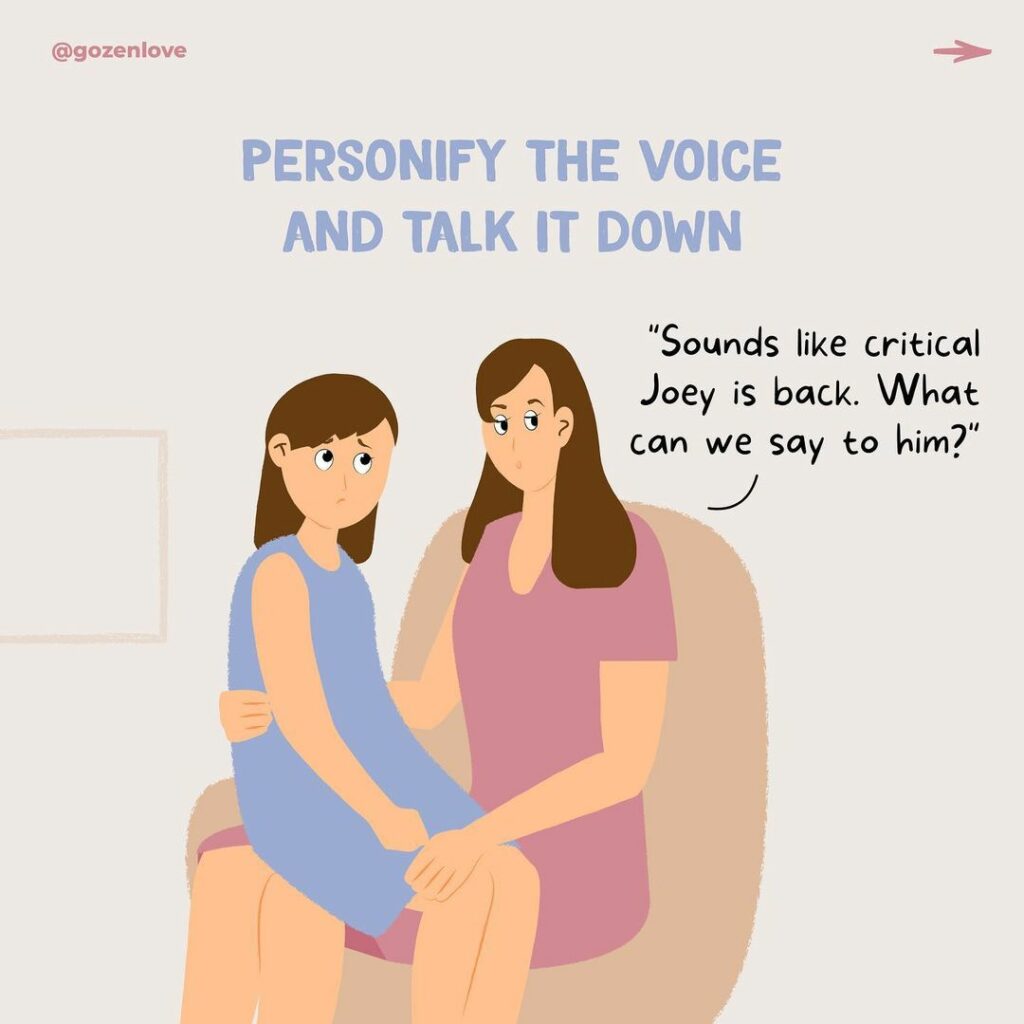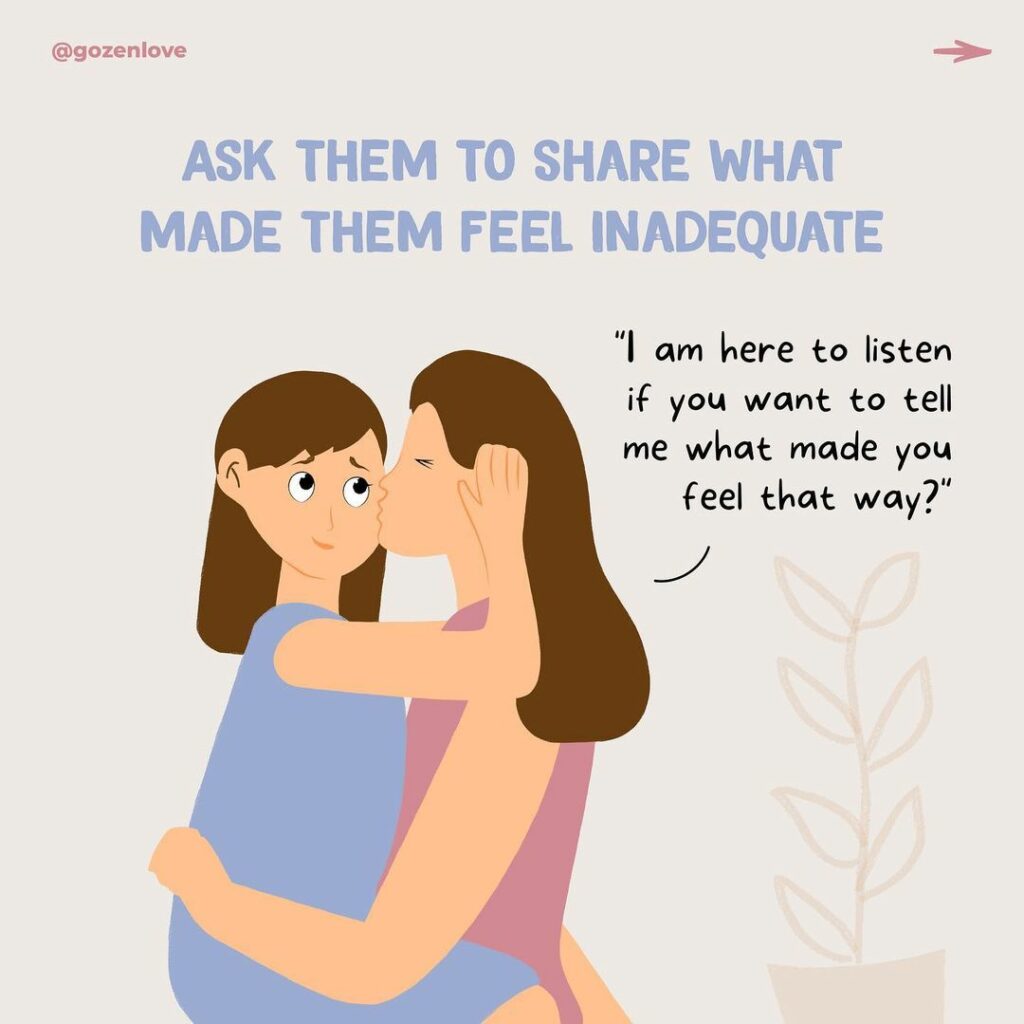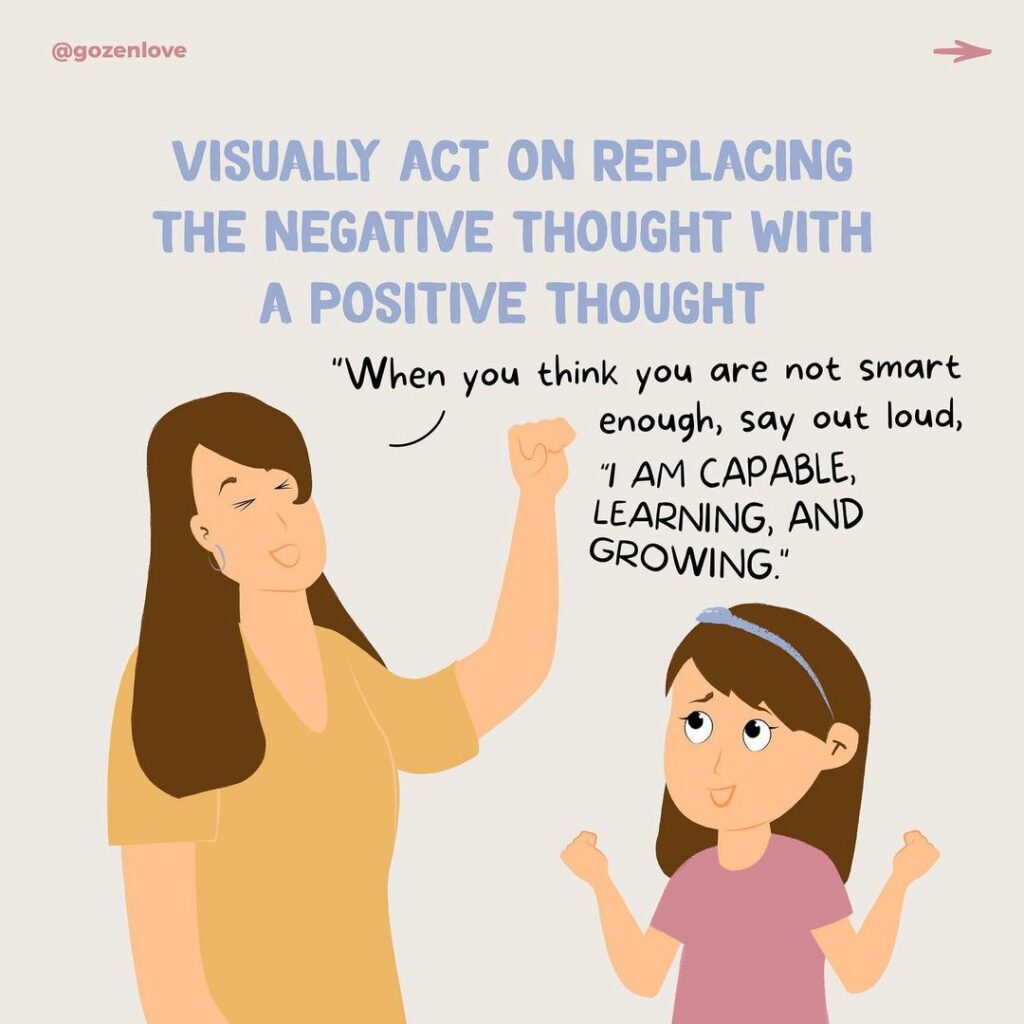“I’m just not smart enough.” “I’ll never be able to do that.” “I wish I was different.”
Is there anything more gut-wrenching than hearing your child question their own intelligence, abilities, or worth? You know they’re brilliant and wonderful, but knowing that they might not feel the same way hurts, and sometimes sends us reeling. I mean, did we not raise them to be confident?!?
“What?!? That’s not true!” We quickly reply. “You’re super smart!” But somehow, before the words are even out of our mouths, we know that we’re not helping. So what can we say?
Let’s take a look at 5 ways you can respond to your little one when they tell you they’re not feeling good about themselves.
1. “Sounds like that thought is a rough draft. Want my help to edit it?”

Remind your child that thoughts aren’t necessarily facts, and that they can take control of them. You’re not forcing unwanted praise onto your child (while kids love your approval, they figure out pretty early on that it’s your job to say nice things). Rather, you’re offering them an opportunity, and your assistance, with changing up their thought process. And it doesn’t need to be immediate. If they’re really upset, support them while giving them space to feel, and let them know that you’re there for them when they decide that it’s time to talk.
2. “The problem you are struggling with does not measure your worth.”

Today, kids feel constant pressure to measure up to their peers, whether they’re trying to get the same number of followers as their friends, or they’re trying to get to the top of their class. Letting your child know that their worth is separate from their problems is an important reminder that there’s so much more to them than overcoming whatever they’re struggling with at the moment. Whether they’re working to bring up their grade in a certain subject, trying to master a new concept, or working to nail a new move in dance class, reminding them of all their positive attributes that have nothing to do with their current problem can help them see the bigger picture.
3. “Sounds like critical Joey is back. What can we say to him?”

Oh, that troublesome critical voice. Always causing trouble.
Teaching your child to view their critical inner voice as a separate entity can help to remind them that they’re able to choose the thoughts that they respond to–and those that they ignore. Teaching your child to respond to their critical inner voice with a stern yet positive thought can help create a habit that will serve them well into adulthood.
4. “I am here to listen if you want to tell me what made you feel that way?”

When you stub your toe, the hurt doesn’t go away immediately just because someone tells you you’re okay. Emotional hurt is the same. So when your child is hurting, give them space to feel that hurt without trying fix everything right away. Listening is the best tool for this job. Offering them the option of talking to you if or when they feel ready can open the door–without pressure–to productive conversation. If your child decides to share what they’re feeling, ask questions with the goal of understanding, not necessarily solving the problem.
5. “When you think you are not smart enough, say out loud, ‘I AM CAPABLE, LEARNING, AND GROWING.'”

Instilling a growth mindset in your child can be incredibly valuable as they learn, grow, and change. Hard work helps intelligence grow, and it’s key that your child let go of the belief that their ability to problem-solve is predetermined. Talking with your child about how they’re working through problems–and the positive growth you’ve seen in their abilities over time–can help them stay positive even when things get tough.
Looking for more help with your kiddo who is doubting their smarts or abilities? Check out the Growth Mindset and Grit Activity Kit, loaded with fun activities, inspiring stories, and grit-building journal pages.